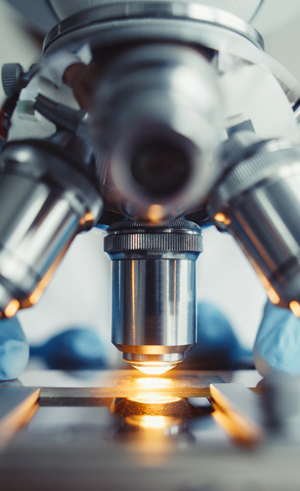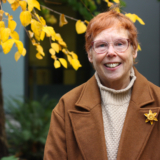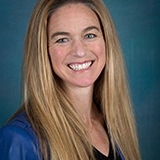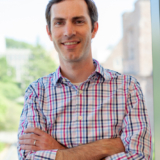
The Future of Aging: Medical Moonshots
Three-part series focused on groundbreaking UW research
What if we could vaccinate against cancer? Or protect against a flu strain that doesn’t exist yet? Or repair heart muscle damaged by a heart attack? Hear how UW researchers are working to make the unimaginable a reality in these three virtual sessions.
What if…vaccines could end cancer?
The UW’s Cancer Vaccine Institute is embarking on a cancer vaccine moonshot to bring vaccines to the clinic for six cancers that make up more than half of the new diagnoses and deaths from cancer in the United States. Dr. Nora Disis will discuss using the immune system to destroy cancer, and how vaccines can effectively kill it.
Thursday, Nov. 9, 1:00
What if…your heart could repair itself?
Dr. Jennifer Davis of the Institute for Stem Cell and Regenerative Medicine will discuss research aimed at re-engineering scar tissue in ways that allow damaged heart muscle to heal.
Tuesday, Nov. 14, 1:00
What if…annual flu shots were a distant memory?
COVID and influenza mutate to evade the protective antibodies that follow a vaccination, creating the need for annual updates. Vaccine research aims for one shot that would protect against all current and future variants. Dr. Neil King of the Institute for Protein Design will explain how new technologies are bringing us closer to this goal of a “universal” vaccine.
Wednesday, Nov. 15, 1:00
Speakers

Mary (Nora) Disis, MD
Professor, Medicine
Adjunct Professor, Pathology and Obstetrics and Gynecology
Member, Fred Hutchinson Cancer Research Center
Associate Dean, Translational Science, UW School of Medicine
Dr. Disis received her M.D. from the University of Nebraska Medical School and completed a residency and chief residency in Internal Medicine at the University of Illinois in Chicago. Her fellowship in oncology was completed at UW/FHCRC. Dr. Disis is an expert in breast and ovarian cancer immunology and translational research. She is one of the pioneering investigators who discovered that HER-2/neu is a tumor antigen. Her work has led to several clinical trials which evaluate boosting immunity to HER-2/neu with cancer vaccines. Dr. Disis is a member of Alpha Omega Alpha and the American Society of Clinical Investigation. She is the Editor in Chief for JAMA Oncology, and is a member of several committees and task forces for both the American Society of Clinical Oncology (ASCO) and the American Association for Cancer Research (AACR). She is also the Director of the Institute of Translational Health Sciences and the Director for the Cancer Vaccine Institute at the UW. Her multifaceted research program within the Cancer Vaccine Institute includes the discovery of new antigens for common solid tumors, the development of vaccine and cellular therapy targeting specific antigens, and immunodiagnostics.

Jennifer Davis, PhD
Director, UW Center for Cardiovascular Biology
Associate Director, UW Institute for Stem Cell & Regenerative Medicine
Assistant Professor, Bioengineering & Pathology
Email: jendavis@uw.edu
Dr. Davis, a cellular and molecular physiologist, uses genetic engineering to study the biology of cardiac wound healing and remodeling. Specifically, she investigates the role of scar tissue in repair processes and how it affects heart muscle function and prevents regeneration. Dr. Davis identified a key set of molecular signals that activate scar-forming myofibroblast cells, and she has successfully engineered them to either promote or block scarring, both at the cellular level and in genetically modified mice. Dr. Davis earned her Ph.D. in Molecular & Integrative Physiology at the University of Michigan, followed by postdoctoral training at the Cincinnati Children’s Hospital Heart Institute. In 2014, she won the Louis N. & Arnold M. Katz Basic Science Research Prize for Young Investigators from the American Heart Association.

Neil King, PhD
Assistant Professor, Department of Biochemistry and Institute for Protein Design
Co-founder, Icosavax, Inc.
Dr. King’s group uses computational protein design to create new protein-based technologies for applications in targeted delivery and structure-based vaccine design. Several nanoparticle vaccines from the group have recently entered clinical trials, and their nanoparticle vaccine for SARS-CoV-2 has been licensed for use in several countries.

